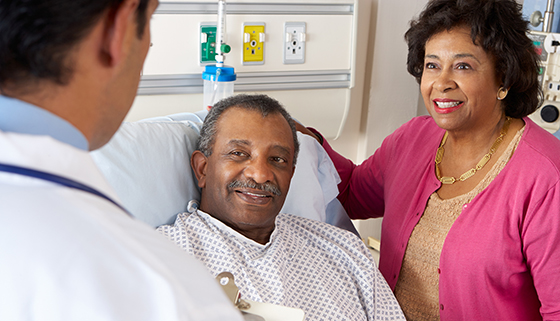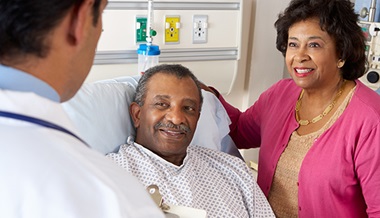Stomach Cancer: How to Find the Best Treatment Team
Featured Experts
When cancer cells form in the lining of the stomach, it’s called gastric cancer. If you or a family member has recently been diagnosed with gastric cancer, you want to make sure you are choosing the best treatment team.
Johns Hopkins gastroenterologist Saowanee Ngamruengphong, M.D., and surgical oncologist Norman Nicolson, M.D., M.H.S., are experts on diagnosing this cancer. They give their recommendations for how to find the right medical team and the best care possible for gastric (or stomach) cancer.
After a stomach cancer diagnosis, how do I pick the right cancer doctor?
Choosing the right medical team is one of the first — and most important — decisions you’ll make in your cancer care.
When evaluating doctors or medical centers, you should ask the following questions:
- Does this doctor specialize in cancer care?
- How many cases of this type of cancer has he or she treated?
- How many gastrectomies (surgery that removes all or part of the stomach) did he or she perform last year
- Does this medical center participate in multidisciplinary cancer care? Will there be many different specialists helping to create my treatment plan?
Benefits of the Multidisciplinary Stomach Cancer Team
For stomach cancer in particular, why is multidisciplinary care so important?
“Multidisciplinary” may seem like a medical buzzword, but it’s important, especially for stomach cancer care.
At Johns Hopkins, we work on multidisciplinary teams for most cancers. That means after someone is diagnosed with gastric cancer, a gastroenterologist such as Dr. Ngamruengphong will perform the initial testing (called an endoscopy). Endoscopy allows us to determine the extent of involvement of the cancer. Then, they will meet with one of our surgical oncologists to figure out the best treatment plan. The surgeon often will request an advanced endoscopic procedure called an endoscopic ultrasound, which helps us stage the cancer appropriately.
For example, studies have shown that chemotherapy before surgery (called neoadjuvant chemotherapy) can lead to better outcomes for advanced gastric cancers. Neoadjuvant chemotherapy shrinks the tumor before the surgery so it’s easier to remove. This is why it’s important for doctors to discuss your case with each other as well as with you.
This planning stage is as important — if not more so — than the surgery itself. If you do it right, you optimize the best outcome.
Should gastrectomy surgery be one of my doctor’s specialties?
You want to choose a doctor who’s experienced in gastric cancer care. There are a couple of reasons for this:
- Better outcomes: Studies show that people who repeat a particular surgery over and over get better at it. When you have a hospital where surgeons perform many gastrectomies, it’s known as a high-volume center. These high-volume centers have consistently better patient outcomes.
- Advanced techniques: When surgeons perform many gastrectomies, they not only get better at performing the surgery overall, but they also find new ways to perform that surgery better. For example, Johns Hopkins surgical oncologists have learned how to more effectively remove all the lymph nodes around the stomach and nearby organs in a procedure called a D2 lymphadenectomy.
- Specialized teams: When you are choosing an institution and surgeon, you are also choosing their teams. Teams that work together in the same specialization minimize the number of complications after surgery.
- New techniques: Minimally invasive surgeries such as laparoscopic or robotic surgery are more likely to be performed by surgeons with experience not only in those approaches but who have seen enough patients to have good outcomes. Surgical oncologists at Johns Hopkins are well-versed in minimally invasive techniques for cancer.








